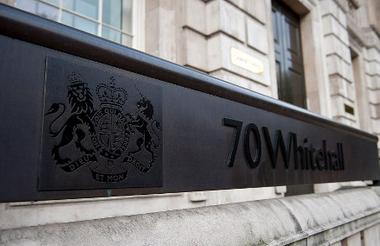The Office for Civil Society was once a powerful force to help charities, says David Robinson, but it has faded now and needs revival.
Under cover of darkness the Office for Civil Society, a shadow of its former self, slips, almost unnoticed, out of the Cabinet Office, shuffles across Whitehall and finds refuge in the cavernous DCMS.
Does it matter to Community Links and organisations like ours? Not much now, no. And therein lies the sadness. Our contact, once regular and varied, had withered into almost nothing.
It is the final act in the rise and fall. Established as the Office of the Third Sector in the days when Gordon Brown's Treasury team led the domestic agenda, it embodied the administration’s commitment to placing the third sector at the heart of policy making and service delivery.
It was well resourced, well led and consistently influential. In the time when Community Links was running the PM's Council on Social Action (2007 to 2010) our contact was almost daily and invariably productive.
The name changed in 2010 but the address remained the same, right next door to a new Prime Minister, then cheerfully singing the praises of the Big Society. Amidst the rubble of a collapsed economy there were still grounds here for optimism and confidence. How the mighty fall.
Gradually the OCS lost resources and influence to the point where the National Citizen Service and social investment were almost all that remained, but even as recently as March of this year hope flickered. George Osborne directed significant new money into an extension of NCS and into the Life Chances Social Impact Bond fund. The PM found a new tune. Once bitten by the opening bars of the “Big Society”, our expectations of “Life Chances Strategy” were more wary, but it did sound like the kind of thing that might involve a role for the third sector. Theresa May picked up the refrain in her first Downing Street remarks last week. Perhaps the OCS would be loved again?
Not so. Unceremoniously abandoned across Whitehall last weekend, there seems to be no more logic to the new location than that 27 Marsham Street had a few spare mugs and a desk or two.
The social investment work is important, to this government as well as to the sector, and it is definitively cross departmental. It would be far more sensibly located in the main Cabinet Office or the Treasury. One thing is for sure – it has absolutely nothing to do with culture, media or sport.
And as for the National Citizen Challenge, it is all that remains of youth work in many areas. It is not, in our judgement, an adequate replacement but it is big, well-resourced and apparently here to stay. Not embedding it properly, structurally and systemically, with schools and other services for children and young people is mindless and careless.
The institutional memory at Community Links stretches back to the days when government's contact with the third sector was largely run through the Active Community Unit in the Home Office. It was a bit like the Charities Unit in a big but unenlightened business, administering a modest and largely unchanging portfolio of grants to a small number of established organisations, unseen and unregarded by most people in the business and largely irrelevant to the overwhelming majority of charities.
The OTS and then the OCS changed all that. It was not just, or even primarily, about the money but about the conduit for contributing ideas, influencing policy, working together at the centre of government.
When there is so much for organisations like ours to work for and shout about, “Revive the OCS” may be well down the agenda but it shouldn’t be forgotten.
David Robinson is the founder of Community Links.
This blog was originally published on the Community Links website.









